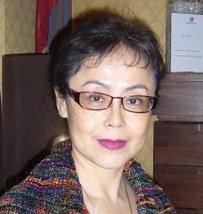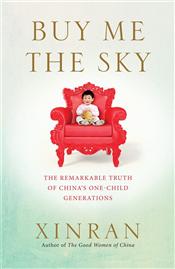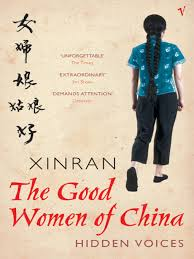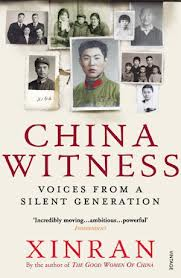 This 1st of January marks the end of the one-child policy in China. Many comments highlighted the demographic and economic consequences of this decision. Xinran’s book, “The single child” just translated into French from the English version “Buy me the sky”, focuses on the impact of this generation of children, on cultural values of the family and the way they lead their lives.
This 1st of January marks the end of the one-child policy in China. Many comments highlighted the demographic and economic consequences of this decision. Xinran’s book, “The single child” just translated into French from the English version “Buy me the sky”, focuses on the impact of this generation of children, on cultural values of the family and the way they lead their lives.
– Thirty five years of repressive policy:
The one-child policy, different in cities and in the countryside, was extremely “effective” and avoided the birth of at least 400 million children; the birth rate fell from 5.44 in 1971 to 1.84 in 1998. A violent policy of abortions and forced sterilizations, fines and pressures of all kinds that are recalled eg in Mo Yan’s novel “Frog“.
The demographic consequences are considerable; the aging population, the impact on the labor market, economic development and pensions have worried for several years the authorities. After easing in 2013, this policy was abandoned and the Chinese are now allowed to have two children.
Similarly, the situation of 13 million “black”children, whose birth has not been declared, will be settled. For cons, the male / female imbalance due to selective abortions and abandonment of baby girls, will be very difficult to correct; in some provinces, there are 118 men for 100 women and trafficking of women from Vietnam is developing.
– We are both “sun and moon”
 Xinran is a Chinese novelist who lives in London since 1997 and is famous for two books: “The good women of China” on the lives of women in China and “Message from an unknown Chinese mother“, devoted to the adoption of small Chinese girls abroad.
Xinran is a Chinese novelist who lives in London since 1997 and is famous for two books: “The good women of China” on the lives of women in China and “Message from an unknown Chinese mother“, devoted to the adoption of small Chinese girls abroad.
In her latest book, she gives us ten interviews of single children, teenagers or young parents. No ambition of a representative survey but the will to emphasize the cultural consequences of this policy.
These single children, these “little emperors”, are both the sun and the moon and focus the anxieties of their two parents and four grandparents. Obsessive fear of an accident, but also concern for parents who have experienced poverty and often very difficult childhoods, and want to spare them any displeasure; demands must be met … On top, parents with only one child, have trouble learning how to be successful parents …
The daily lives of these children / teenagers is often fully supported to eliminate all risks. They are then unable to cope in everyday life and this brings us some stories of young students arriving on their own in London!
Children, especially in cities, are very isolated. The absence of siblings, limited contact outside school with children of their age, all this does not teach them how to live together and does not prepare them for later a successful life as a couple.
The focus is on grades, on academic success that will allow to continue the upward mobility of the family, on money that can satisfy expensive tastes that impress those around. Moral education of Chinese tradition is forgotten. The school is based on learning by memory and competition among students, allowing no way to break the isolation.
– Keep the status of “little emperor”:
 The marriage of single children is often controlled by parents who install them in maximum comfort by organizing their daily life. Young couples usually do not know how to cook!
The marriage of single children is often controlled by parents who install them in maximum comfort by organizing their daily life. Young couples usually do not know how to cook!
They are in no hurry to have children, which would make them lose their status. When they are parents, they have no desire to have two children; so this new family policy may not achieve its objectives.
They have problems to assume their status as parents and often their child is raised by the grandparents. Moreover they live with the anxiety of having to support parents and grandparents in the future with a failing pension system.
One of the merits of the book is to emphasize the aggressiveness of children vis-à-vis parents. They cannot accept to have some requests rejected, but mostly they blame their parents for having them brought up without any autonomy, as “pets”. Conflicts with parents are frequent despite the normal debt of gratitude.
Of course it is sometimes not fair to transfer all responsibility to the parents and it is unrealistic to use the mistakes made by the family to justify a lack of energy or talents. For some, winning their independence leads to aggressively cut ties with the family, even if life can be difficult and regardless of the trauma inflicted to parents.
These single children couples have trouble finding harmony in relations because of “selfish” education, the difficulties are frequent and divorces numerous. Moreover, this desire for autonomy and the refusal of the traditional family is accompanied by a change of attitude concerning sex before marriage.
– Interesting but sometimes limited observations:
 Xinran herself in her last chapter, considers that she has not surveyed enough poor students from the countryside, who can be very different from the city little emperors. Similarly, most of the interviews are of students abroad; in China, we might have had different results and comments from Xinran slightly less sententious and conclusive.
Xinran herself in her last chapter, considers that she has not surveyed enough poor students from the countryside, who can be very different from the city little emperors. Similarly, most of the interviews are of students abroad; in China, we might have had different results and comments from Xinran slightly less sententious and conclusive.
If she exposes, rightly, of the very excessive intrusion of parents in their child’s life, Xinran also stresses that the isolation and helplessness of parents, also deprived of the traditional environment, has not been sufficiently analyzed.
The political consequences are not discussed: in 1950, the Revolution and the Party come first, the Homeland second. Care vis-à-vis the family and child is almost considered a bourgeois attitude. Xinran herself, raised by her grandmother, has suffered from the absence of her mother.
Is there a political impact? This generation of single children seems much less involved. The objective is clearly money, comfort. Parents hardly speak of the difficulties often dramatic they have faced or the political upheavals in China that have affected them directly. There is a truly break in the family culture.
Is this situation, is the single child the essential factor, or is the upheaval also coming from growing up in a “three-screen world”, TV, PC, mobile, the question is not really touched.
Bertrand Mialaret
Xinran, “The only child”, translated from English by Françoise Nagel. Editions Philippe Picquier, January 2016, 380 pages, 23 euros.
Xinran, « Buy me the sky », translated from the Chinese by Esther Thyldesley and David Dobson. Rider, may 2015 , 320 pages
PS: Another book on the same subject has been written by Mei Fong, former correspondent for the Wall Steet Journal in China. I have not read “One Child. The Story of China’s Most Radical Experiment” but the review by Helen Wang, one of the driving forces of “Paper Republic” is positive.





